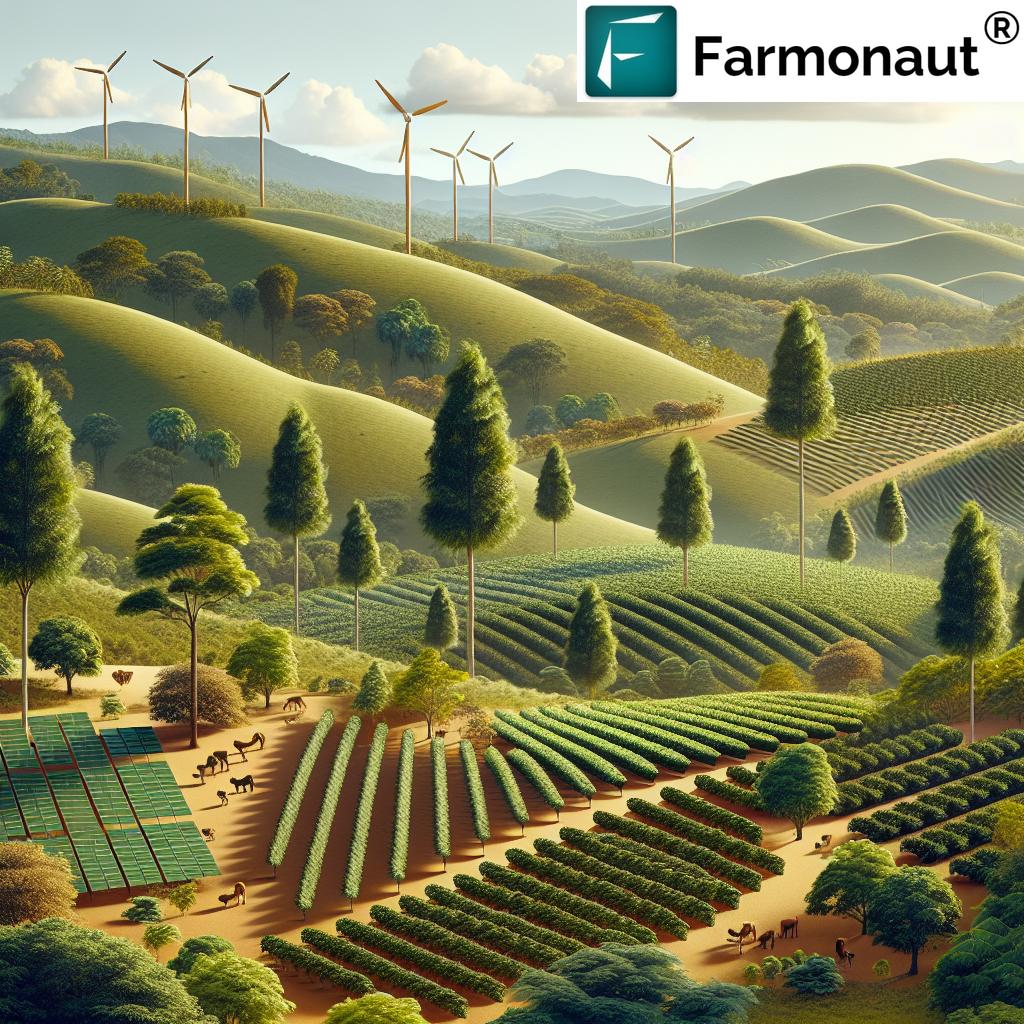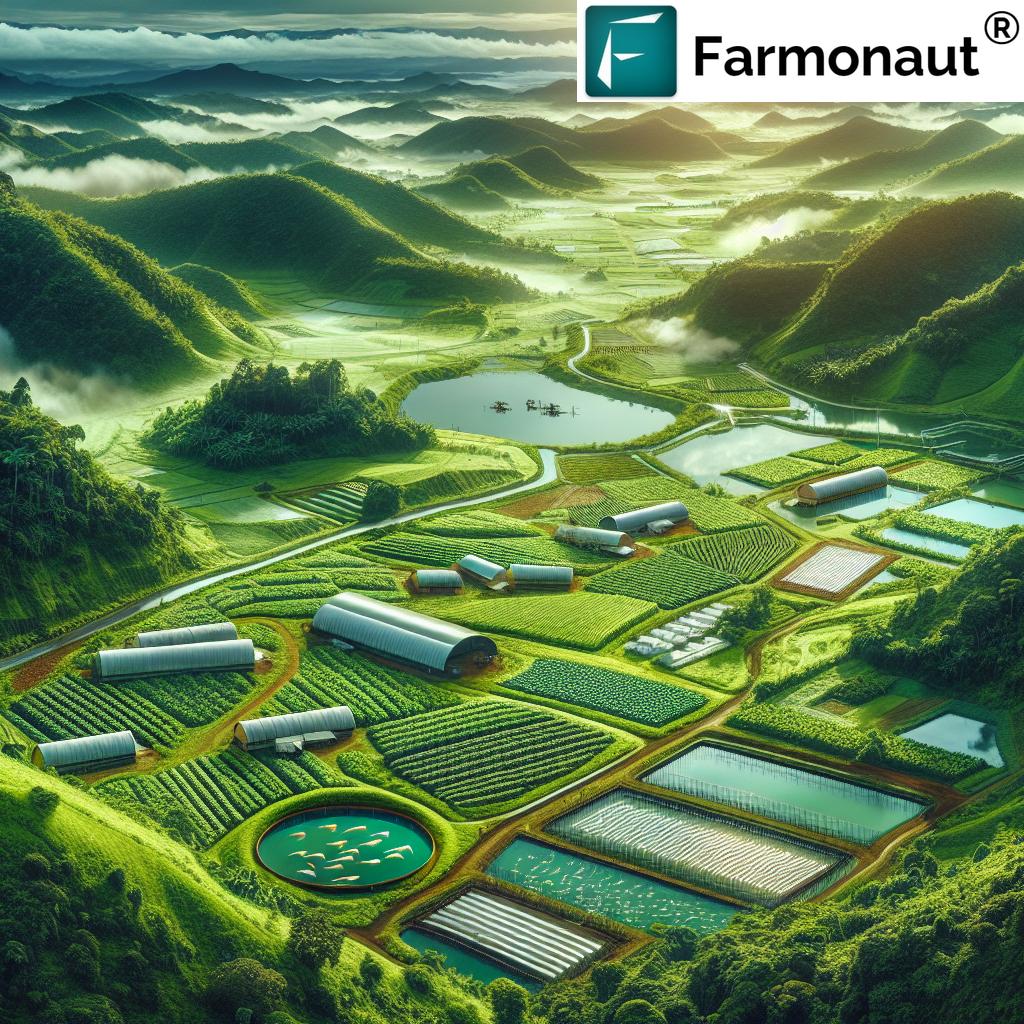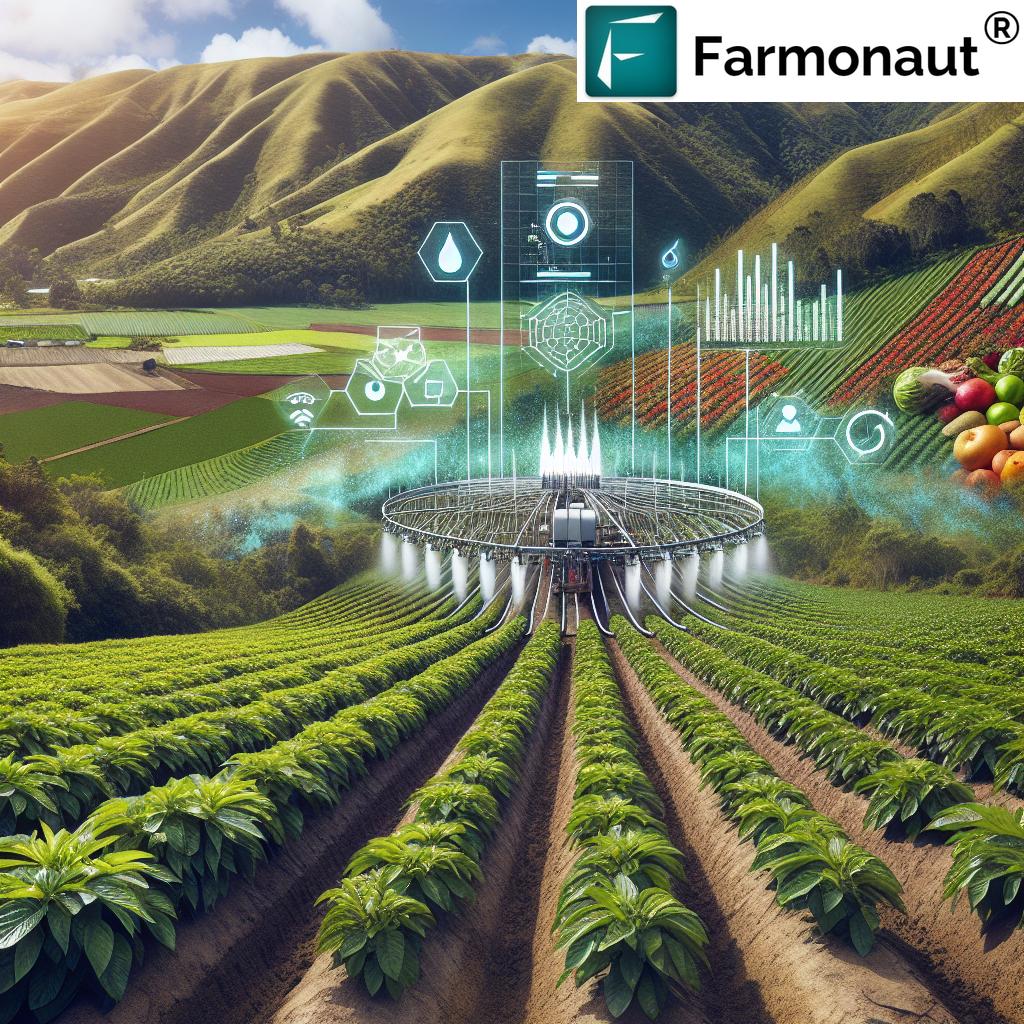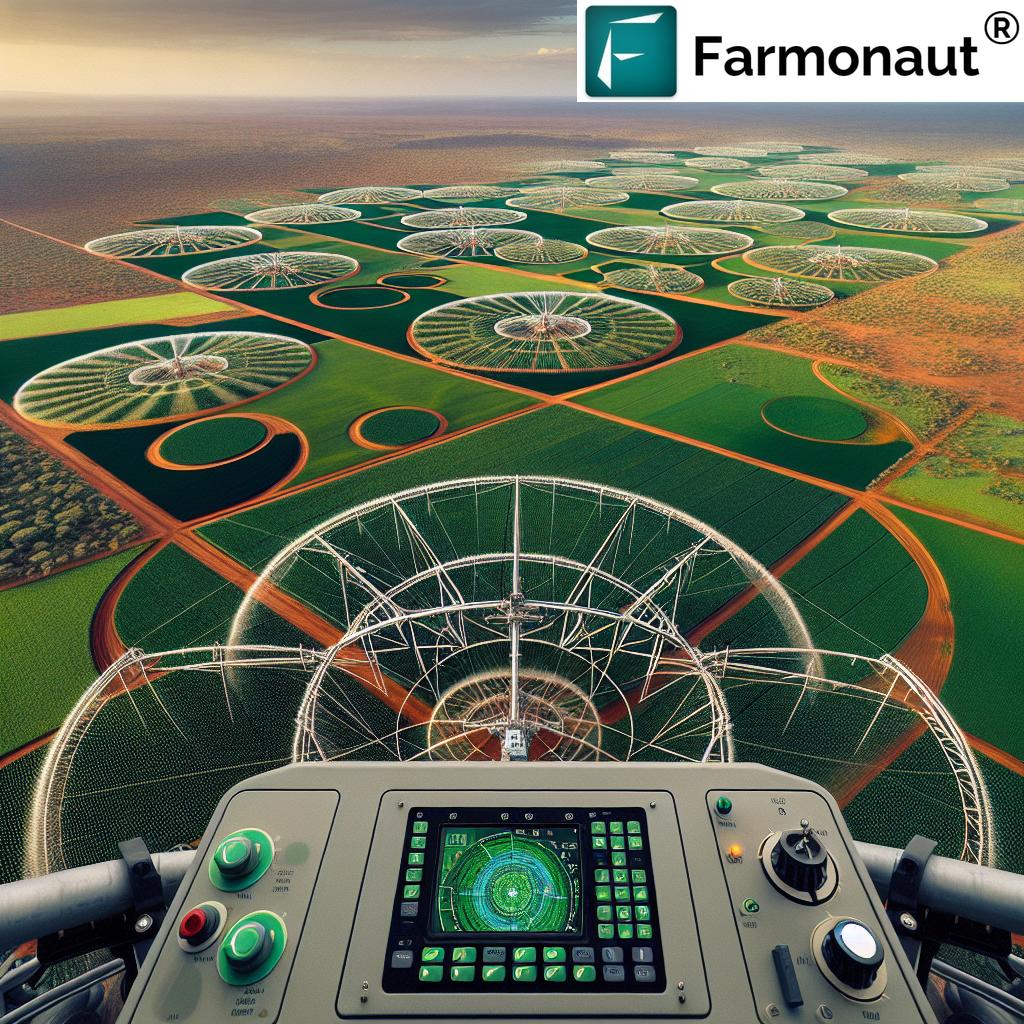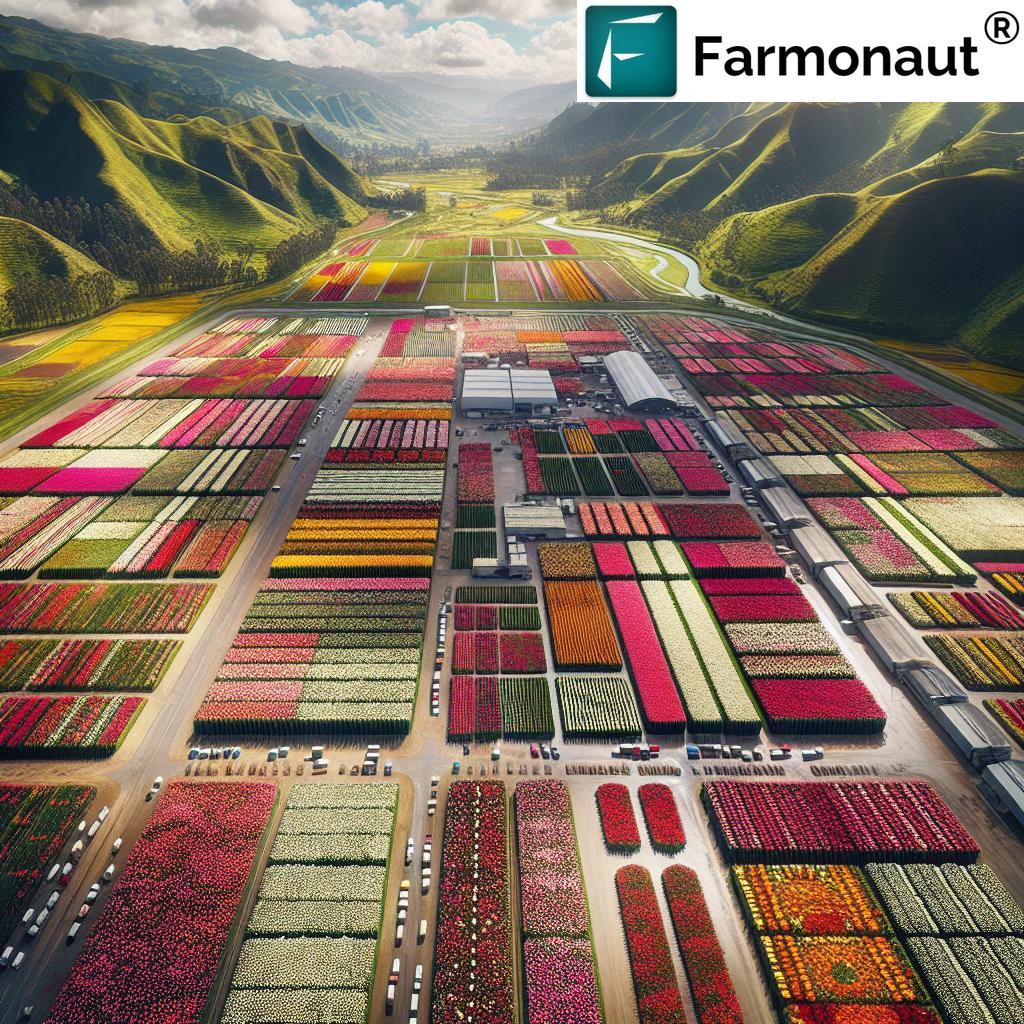Brazil Organic Pesticides: Botanical Pesticide vs Chemical
“Brazil’s organic pesticide sector grew by 32% in 2023, outpacing chemical pesticide demand for the first time.”
Table of Contents
- Brazil’s Shift from Chemical Fertilizers and Pesticides to Botanical Pesticides: An Overview
- Brazil Organic Pesticides Market: Dynamics in 2025 and Beyond
- What Are Botanical Pesticides? Understanding the Basics
- How Botanical Pesticides Work: Ingredients, Mechanisms & Efficacy
- The Role and Challenges of Chemical Fertilizers and Pesticides in Brazil
- Comparative Analysis: Botanical vs Chemical Pesticides in Brazilian Agriculture
- Agricultural Trends and Consumer Drivers for Organic Pesticides in 2025
- Integration of Botanical Pesticides with IPM & Smart Farm Management
- Key Challenges & Limitations of Botanical Pesticide Adoption
- Satellite Solutions for Sustainable Farm Management – Farmonaut
- FAQ: Brazil Organic Pesticides, Botanical vs Chemical
- Conclusion: The Future of Brazil’s Pesticide Market
Brazil’s Shift from Chemical Fertilizers and Pesticides to Botanical Pesticides: An Overview
The Brazil organic pesticides market is undergoing a significant transformation as the country navigates the complex balance between maximizing crop yields and adopting sustainable farming practices. Central to this evolution is the shifting dynamic between botanical pesticides and traditional chemical fertilizers and pesticides, a trend that mirrors global concerns about environmental health, food safety, and long-term soil productivity.
Brazil, renowned for its vast agricultural sector and as a leading global exporter of coffee, soybeans, fruits, and vegetables, is uniquely positioned at the forefront of the sustainable agriculture movement. As we look to 2025 and beyond, the adoption of biopesticides — particularly those botanical pesticides derived from natural plant extracts — represents an important shift toward ecological balance and reduced toxicity in crop management.
This trend is driven not only by increasing demand from domestic producers and international consumers but also by substantial government incentives, changing consumer preferences, and a new wave of research and investment in local, organic and natural inputs. The resulting shift has significant environmental and economic implications for Brazilian agriculture.
In this comprehensive blog, we will explore the Brazil organic pesticides market, the benefits and challenges of botanical pesticide use versus chemical options, and the broader implications for farming sustainably into 2025 and beyond.
Brazil Organic Pesticides Market: Dynamics in 2025 and Beyond
The Brazil organic pesticides market is at a pivotal juncture. The market stands at the forefront of a significant shift away from chemical fertilizers and pesticides to botanical pesticide solutions that are eco-friendly and align with both Brazilian and international demands for safe food production.
- Market Growth: Brazil’s organic pesticide sector expanded by 32% in 2023, reflecting exceptionally robust demand from both domestic producers and the global market.
- Government Incentives: Support policies include streamlined registration for biopesticides, subsidies for sustainable farming, and investment in research and development of local natural inputs.
- Innovation and Research: Brazilian agritech companies and research institutions are exploring botanical compounds from both native Amazonian plants and well-known botanicals such as neem and citronella for pesticidal applications.
- Environmental Regulation: Increasing regulatory requirements on chemical pesticide residues in food production are encouraging farmers to adopt botanical pesticides that meet stringent limits.
Notably, consumer awareness in both local and international markets is increasing, creating an environment where producers are not only rewarded for higher organic yields but also for stewarding soil health and biodiversity.
This evolution in the Brazil organic pesticides market is also supported by advanced digital and satellite solutions, such as those offered by Farmonaut, facilitating real-time monitoring, sustainability tracking, and resource management for both large-scale and family-run farms. Farmonaut’s satellite-driven insights help farmers optimize crop health and ensure regulatory compliance.
“Botanical pesticides in Brazil improved crop yields by 18% and boosted soil health versus farms using only chemical pesticides.”
What Are Botanical Pesticides? Understanding the Basics
Botanical pesticides are a class of biopesticides that represent an important step forward in Brazilian agriculture. They are derived from natural plant extracts and compounds, and are used for pest control across a range of crops, including coffee, fruits, and vegetables.
- Natural Origin: Made from compounds found in plants (e.g., neem, pyrethrum, citronella, and native Amazonian botanicals)
- Biodegradable: Break down more quickly than synthetic chemicals, reducing environmental accumulation
- Lower Toxicity: Present reduced risks to non-target organisms — including beneficial insects, pollinators, animals, and humans
- Resistance Management: Offer distinct mechanisms of action and reduce pest resistance issues associated with the overuse of chemical inputs
- Alignment with Integrated Pest Management (IPM): Botanical pesticides are ideal for integrated and sustainable pest management strategies, enabling synergy with crop rotation, biological control agents, and cultural practices
The Brazil organic pesticides market is particularly focused on harnessing local biodiversity to produce botanical products that offer natural, high-value alternatives to traditional chemicals.
How Botanical Pesticides Work: Ingredients, Mechanisms & Efficacy
Botanical pesticides leverage complex natural chemistry to deter, repel, or kill pests. Their effectiveness and mode of action differ significantly from traditional synthetic chemical pesticides:
Key Ingredients in Botanical Pesticides
- Neem (Azadirachta indica): Acts as an antifeedant, growth regulator, and repellent; commonly used in Brazil
- Citronella: Known for mosquito control, also active against fungal pests
- Pyrethrum (Chrysanthemum extracts): Fast-acting; targets a broad spectrum of insects but breaks down rapidly
- Amazonian Botanicals: Unique to Brazil; research is rapidly expanding into local plant extracts for both small and large-scale farming solutions
Mechanism of Action and Benefits
- Multi-Pathway Action: Many botanical pesticides attack pests on multiple fronts — disrupting the nervous system, reproduction, or molting cycles
- Short Residual Period: These products degrade quickly in the environment, helping farmers meet stringent residue limits in organic and export crops
- Lower Risk of Resistance: By alternating or combining modes of action, botanical pesticides help reduce the risk of pest resistance — a major challenge with overused chemical inputs
- Safety & Health: Lower toxicity for farm workers and safer proximity for rural communities
- Soil Health: Minimal impact on soil microbial communities, supporting soil fertility and biodiversity
Where Botanical Pesticides Are Especially Valuable in Brazil
- Export-oriented crops: Coffee, fruits, vegetables where residue limits are strict
- Organic and ecological farms: Must comply with organic certifications and consumer expectations
- Regions adjacent to protected zones: Reduce risks of contamination of aquatic ecosystems and Amazon watershed
The Role and Challenges of Chemical Fertilizers and Pesticides in Brazil
Chemical fertilizers and pesticides have long been the backbone of conventional Brazilian agriculture, enabling immediate yield boosts and large-scale pest control. However, their continued intensive use raises significant environmental and health concerns:
Core Challenges with Chemical Inputs
- Soil Degradation: Overuse of chemicals leads to the breakdown of essential soil microbial communities, undermining long-term fertility and structure.
- Nutrient Runoff: Excessive fertilizer application results in the leaching of nitrogen and phosphorus, contributing to water eutrophication and the loss of aquatic biodiversity in sensitive ecosystems like the Amazon watershed.
- Pesticide Residues: Persistent residues on food threaten both domestic consumer safety and access to international markets with strict standards.
- Resistance Issues: Pests exposed repeatedly to the same chemicals can quickly develop resistance, leading to a pesticide treadmill and increased costs.
- Health Impacts: Farm workers and rural populations face risks from exposure (including respiratory, neurological, and reproductive effects).
- Biodiversity Loss: Chemical overuse destabilizes beneficial insect populations and other non-target organisms.
While chemical fertilizers and pesticides are highly effective for immediate crop protection, their drawbacks have created urgent demand for alternatives like botanical pesticides.
Today, many Brazilian producers are exploring market-driven practices to reduce dependence on chemicals and tap into organic premium markets.
Comparative Analysis: Botanical vs Chemical Pesticides in Brazilian Agriculture
Botanical Pesticide vs Chemical Pesticides: Environmental and Economic Impacts
| Parameter | Botanical Pesticides (Estimated Value) | Chemical Pesticides (Estimated Value) |
|---|---|---|
| Environmental Impact (Soil Health Rating) | 8.5/10 (positive, promotes microbial life) | 4/10 (can degrade organic matter and disrupt organisms) |
| Biodiversity Improvement | +17% beneficial insect activity | -21% beneficial insect activity |
| Crop Yield Change (%) | +18% (medium-term increase) | +10% (strong, short-term boost; may decline over time) |
| Cost per Hectare (USD) | $22–$55 (varies by product & scale) | $29–$70 (varies by crop & intensity) |
| Residual Toxicity Period (days) | 2–7 days (biodegradable, safe for rapid harvest) | 10–45 days (persistent chemical residues) |
| Regulatory Approval Rate (%) | 82% (fast-track for low-toxicity biopesticides) | 55% (increasing regulatory hurdles for new chemicals) |
| Farmer Adoption Rate (%) | Estimated 29% (rapidly rising in 2025) | Approx 53% (declining due to regulations) |
This comparative table illustrates the broader shift in Brazil: while chemical fertilizers and pesticides offer immediate results, they pose long-term issues for soil health, productivity, and environmental safety. In contrast, botanical pesticides, though sometimes still costlier per kilogram, offer significant long-term value — especially as research and local production increase in scale.
Agricultural Trends and Consumer Drivers for Organic Pesticides in 2025
Global consumer trends are increasingly shaping Brazilian farming practices and pesticide use. In 2025, several factors are at play:
Why Farmers and Producers Are Embracing Botanical Products
- Stringent Export Markets: Brazil’s major trade partners (EU, North America, Japan) are enforcing ever-lower residue limits, rewarding farms using certified organic or botanical pesticides.
- Organic Premiums: Consumer demand for organic produce — particularly coffee, fruits, and vegetables — delivers superior pricing for farms meeting sustainability and residue standards.
- Government Support: Subsidies, training, and streamlined regulatory paths accelerate biotech start-ups and established agrifirms towards biopesticides.
- Reputation & Environmental Responsibility: Farms adopting botanical pesticides and reducing chemicals signal commitment to soil health, biodiversity, and sustainable food production.
- Long-term Productivity: Reduced chemical loads on soil help maintain farm productivity and limit risks of yield crashes due to degraded soil or pest resistance.
One exciting development in Brazil is the use of digital carbon footprinting and traceability solutions (such as those powered by Farmonaut) — empowering producers to document, authenticate, and communicate their sustainable practices to buyers and regulatory authorities.
Integration of Botanical Pesticides with IPM & Smart Farm Management
The integration of botanical pesticides into modern integrated pest management (IPM) strategies, and the use of digital tools, are central to Brazil’s sustainable agriculture future.
Key Principles of IPM with Botanical Pesticides
- Surveillance: Monitor pest populations and thresholds using digital farm management platforms such as those from Farmonaut (offering real-time mapping and AI-based pest risk prediction).
- Prevention: Prioritize crop rotation, biological controls (beneficial insects), resistant crop varieties, and minimum chemical input policies.
- Intervention: Apply botanical pesticides with precisely timed applications, reducing unnecessary exposure and supporting natural pest antagonists.
- Analysis: Evaluate efficacy and adjust the management strategy as new data becomes available.
Easy mobile access to such integrated solutions via the Farmonaut app allows farmers to monitor crop health, track environmental impact, and manage field resources remotely.
Interested in integrating satellite-driven data into your farm operations, digital traceability, climate reporting, or loan/insurance access?
- Learn about Farmonaut’s satellite crop loan & insurance — streamlining verification for agricultural financing in Brazil.
- Fleet management tools for agriculture — optimize efficiency and reduce input wastage.
- Farmonaut Satellite API and API Developer Docs — integrate field data, weather, and remote pest risk into your custom systems.
Key Challenges & Limitations of Botanical Pesticide Adoption
Despite clear benefits, broad adoption of botanical pesticides in Brazil faces several hurdles:
- Variability in Efficacy: Botanical products can show variable results due to differing environmental conditions and unique pest/crop interactions across Brazil’s biomes.
- Shorter Shelf Life: These natural products are often less stable than synthetic counterparts, making distribution and storage a challenge, especially in the Brazilian climate.
- Farmer Training: A shift from chemicals to botanicals requires significant outreach, demonstration, and farmer education on integrated use and application best practices.
- Processing & Infrastructure: To meet Brazil’s vast agricultural sector demand, investments in extraction, processing, and formulation are necessary for scaling.
- Cost & Consistency: While costs per hectare are becoming competitive, consistency and reliability in performance still require close research and feedback loops.
Still, the long-term environmental and economic benefits are compelling enough that the Brazil organic pesticides market is projected to continue expanding rapidly through and beyond 2025.
Satellite Solutions for Sustainable Farm Management – Farmonaut
As Brazilian agriculture becomes increasingly data-driven, Farmonaut is at the cutting edge of technological support for agricultural sustainability.
We provide farmers, agronomists, and institutions with:
- Satellite-Based Crop and Soil Monitoring: Using multispectral satellite imagery, our platform enables timely insights into vegetation health (NDVI), soil conditions, and the effectiveness of inputs (e.g., response to botanical or chemical pesticides).
- AI-Driven Advisory: The Jeevn AI system delivers custom recommendations, weather forecasts, and pest risk analytics to help optimize resource allocation and maximize crop productivity.
- Blockchain-Based Traceability: Secure end-to-end traceability for products using Farmonaut’s traceability solutions, vital for the premium organic market and consumer trust.
- Real-Time Environmental Monitoring: Track carbon footprints, soil health, and environmental impacts to ensure compliance with sustainability criteria using Farmonaut’s carbon footprinting tools.
-
Resource & Fleet Management: Our digital platform supports operational efficiency, cost control, and optimal input application through advanced fleet management and
large field management applications.
Our system is designed to be cost-effective and accessible on all devices, empowering farmers and agribusinesses in Brazil to maintain the balance between food productivity and environmental stewardship, especially during this era of rapid market and regulatory change.
FAQ: Brazil Organic Pesticides, Botanical vs Chemical
What are botanical pesticides, and how are they used in Brazil?
Botanical pesticides are biopesticides derived from natural plant extracts and compounds, used in Brazil for pest and disease control in crops such as coffee, fruits, and vegetables. Their popularity is rising due to benefits like biodegradability, reduced toxicity, compliance with organic standards, and alignment with sustainable farming practices.
How do botanical pesticides differ from chemical fertilizers and pesticides?
Chemical fertilizers and pesticides are synthetic compounds designed for fast-acting pest and nutrient management. They provide immediate yield boosts but often harm soil, water, and non-target organisms due to their toxicity and persistence. Botanical pesticides, in contrast, degrade quickly, have lower toxicity, and support long-term soil health and biodiversity.
Will switching to botanical pesticides impact crop yields?
Research and farm trials in Brazil demonstrate that adopting botanical pesticides can improve yields by an average of 18% over time, as soil health recovers and pest resistance declines when compared with continuous chemical pesticide use.
What are the challenges to using botanical pesticides in large-scale Brazilian agriculture?
Challenges include variability in efficacy due to climate and pest populations, shorter shelf life, scalability, need for farmer training, and investment in local production infrastructure. However, government policies and market demand are accelerating solutions to these challenges.
How does Farmonaut support sustainable pesticide usage in Brazil?
Farmonaut provides satellite-based monitoring, AI advisory, blockchain traceability, and resource management tools that help Brazilian farmers optimize input use, analyze field conditions, and document compliance with organic and sustainability standards.
Conclusion: The Future of Brazil’s Pesticide Market
As Brazil enters 2025, the Brazil organic pesticides market is at the center of a significant transformation. The shift from a chemical-dependent past to a future driven by sustainable botanical pesticide solutions is boosting yields, improving food safety, and safeguarding soil health and biodiversity.
This transformation is propelled by a combination of regulatory incentives, international market demands, technological advancements, and a deepening awareness among consumers, producers, and policymakers about the broader environmental and health concerns of chemical overuse. Overcoming challenges of scaling, efficacy, and consistency will require continued investment in research, farmer education, and advanced infrastructure throughout Brazil’s agricultural sector.
By facilitating real-time monitoring, sustainable input management, and traceability,
solutions like those provided by Farmonaut are making it possible for farms of every size to navigate this
complex dynamic and thrive in a data-driven, sustainability-oriented landscape.
In sum: The integration of botanical pesticides is creating a sustainable balance in Brazilian agriculture—one that maximizes yields while maintaining soil health, biodiversity, and long-term productivity for generations to come. As global and local trends continue to favor sustainable products, the Brazil organic pesticides market stands poised at the forefront of this new agricultural era.




